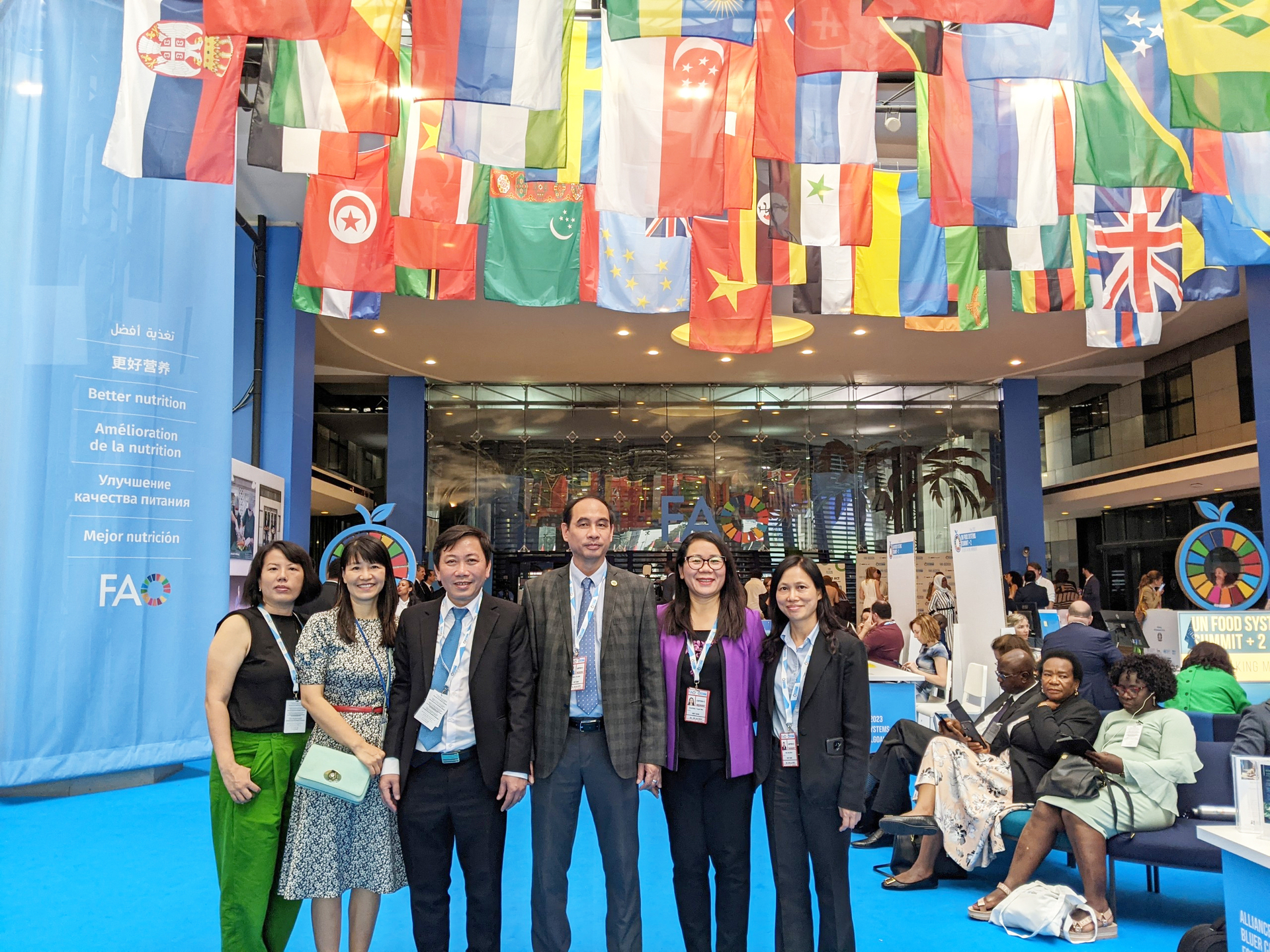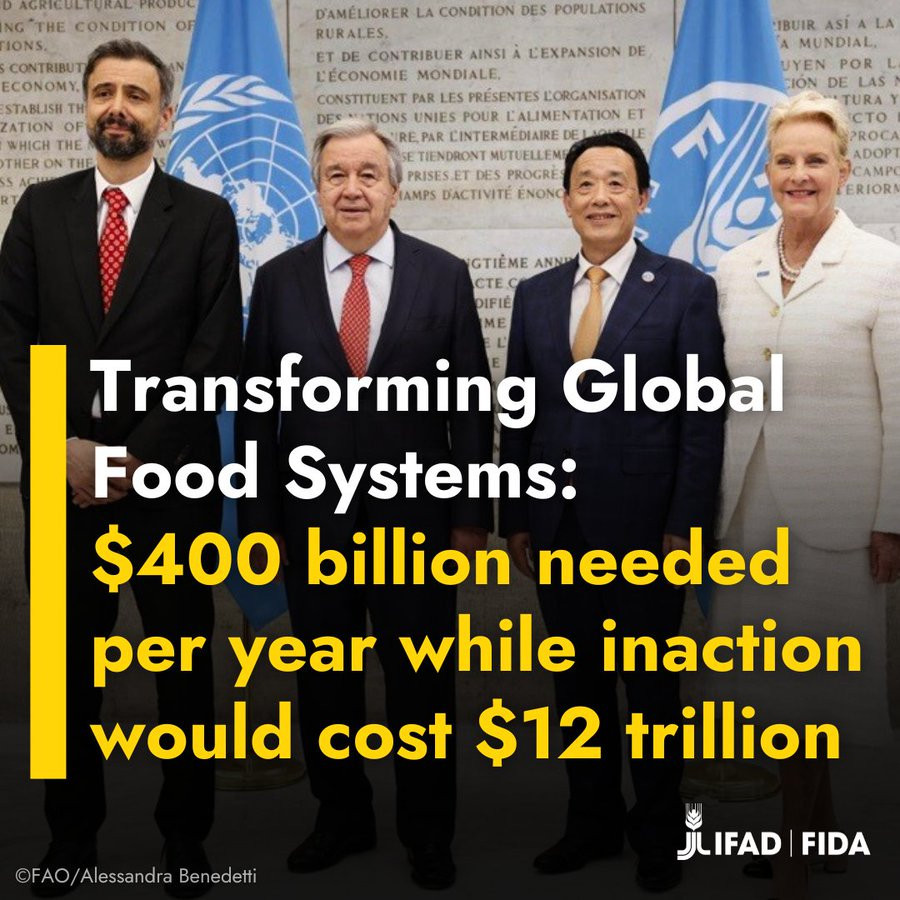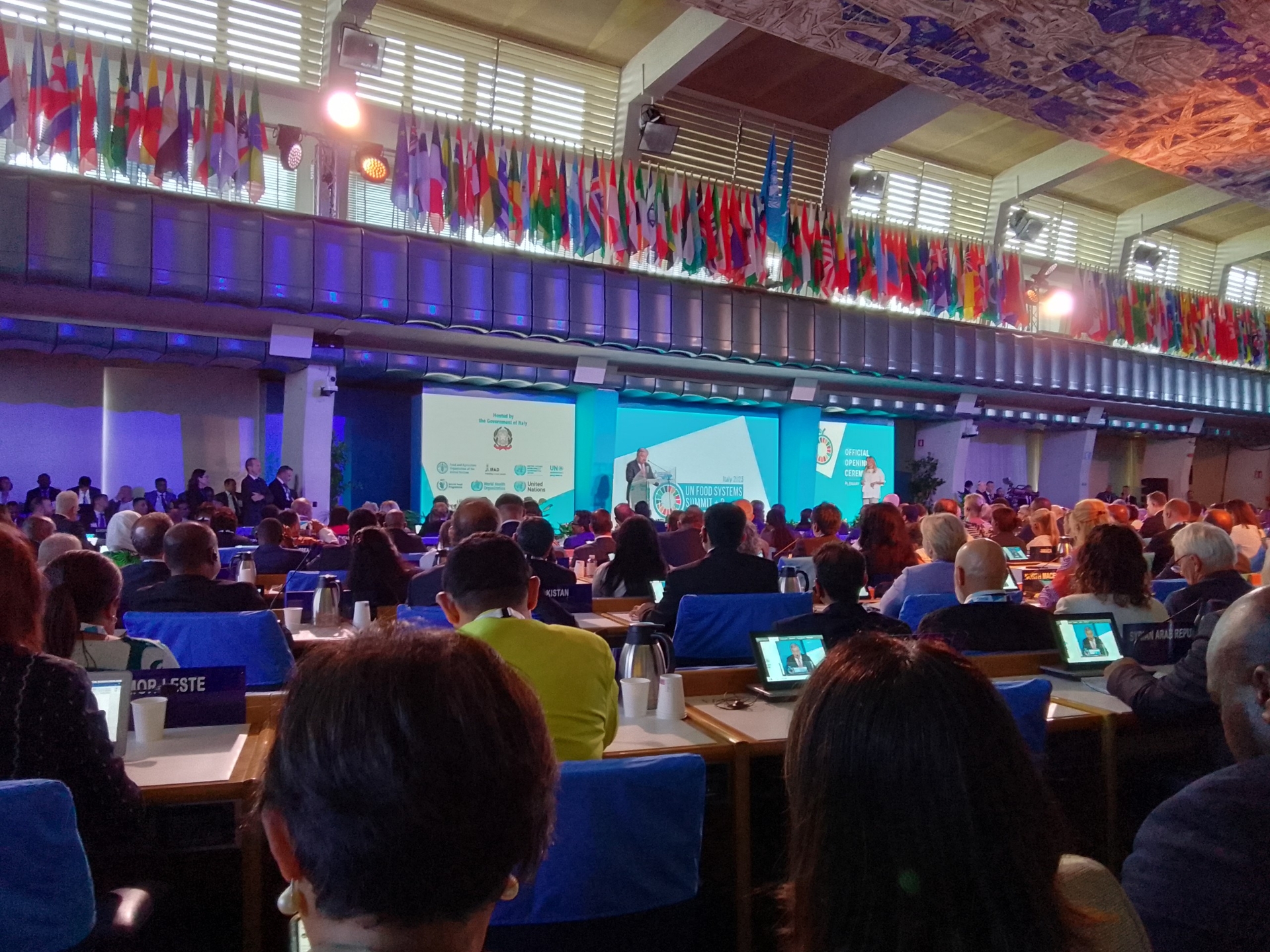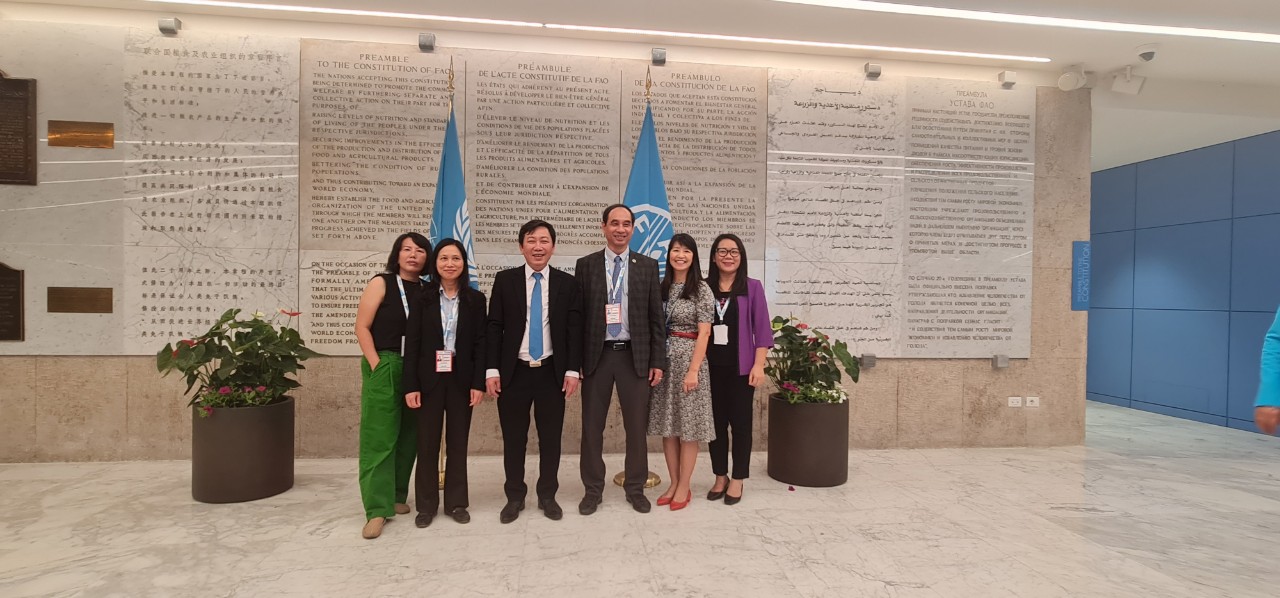May 20, 2025 | 22:43 GMT +7
May 20, 2025 | 22:43 GMT +7
Hotline: 0913.378.918
May 20, 2025 | 22:43 GMT +7
Hotline: 0913.378.918
Within the framework of the UN Food Systems Summit (July 24–26, 2023 in Rome, Italy), the UN Food Systems Stocktaking Moment – a global conference – takes place to evaluate the two-year implementation of the United Nations Food Systems Summit 2023.
Over 2,000 delegates from 161 countries participated in the conference, including 22 state leaders, more than 100 ministerial leaders, and 150 international organizations. Some representatives from the UN are the Secretary-General and the Director-General of the Food and Agriculture Organization of the United Nations (FAO). The Prime Ministers of Italy, Ethiopia, Bangladesh, Samoa and Nepal also attend and speak at the opening session on the July 24 afternoon at FAO headquarters in Rome.

The 2023 UN Food Systems Stocktaking Moment in Rome, Italy, from July 24–26.
This event succeeds the Food Systems Summit 2021, providing an opportunity for countries to review commitments and assess progress in implementing food systems transformation. The conference has three goals:
(i) Connecting “food security” and “food system transformation” on international agendas through many high-level activities such as the 4th global conference of the Sustainable Food Systems Program to be held in Hanoi, Vietnam (April 2023); high-level forum on sustainable development 2023 in New York (July 2023); high-level dialogue on financing for development in New York (September 2023); the 28th Conference of the Parties on Climate Change (COP 28) in the UAE (November – December 2023).
(ii) Emphasizing and promoting the implementation of food systems transformation at all levels, especially at the national level;
(iii) Discussing several issues after the 2030 Sustainable Development Goals.

400 billion USD is needed yearly to transform global food systems and prevent damage which may cost 12 trillion USD annually. Photo: FAO.
Speaking at the summit’s opening, UN Secretary-General António Guterres states that people are at the heart of the food system and that access to food is one of the fundamental human rights.
He also wishes for countries, businesses, the scientific community, international organizations, civil society organizations and partners with the UN Food Innovation Hub to transform through cooperation, collective learning and experience sharing. This ensures that everyone, every community, and every country can access safe food. To achieve this goal, deploying, replicating models and investing in developing countries is necessary.

Over 2,000 delegates from 161 countries participated in the conference, including 22 state leaders, more than 100 ministerial leaders, and 150 international organizations.
In her speech, Italian Prime Minister Giorgia Meloni emphasizes the need to invest in research, technology and innovation for the Global Food System. These processes will enhance sustainability and improve the products’ quality and quantity. At the same time, only large-scale funding can influence the Food System, so working with international financial institutions is a critical factor in implementing more agricultural transformation projects in the future.
She also informs that Italy will invest in Agritech, a strategic research center in Naples, to develop new technologies, starting with remote sensing/aeronautics and their applications in agriculture. The government will also invest in the Italian Climate Fund with an annual budget of 840 million EUR, thereby helping promote sustainable food system transformation in developing countries.
Concluding her speech, she cites the words of Cicero, one of the most influential philosophers of ancient Rome: “Of all the arts from which we derive some profit, none is better than agriculture, none more profitable, none sweeter, none more worthy of a man, and of a free man.”

The Vietnamese delegation attending the UN Food System Summit 2023.
In his opening remarks, FAO Director-General Qu Dongyu emphasizes that food systems transformation holds great power and potential in contributing to achieving the Sustainable Development Goals (SDGs). He also noted the progress made in food and agriculture systems can provide for better production, better nutrition, better environment and better lives.
To accelerate the transition, FAO focuses on four key areas: science and innovation, data capabilities, public and private financing, and inclusive agricultural system governance mechanisms.
The Prime Ministers of Ethiopia, Bangladesh, Samoa, and Nepal emphasize the crucial role of the food systems transformation to achieve 17 SDGs 2030 in the context of climate change and new global crises, as well as the importance of investing in the food system transformation because “The cost of inaction is much higher than the cost of transformation.”
The participation of many Government leaders at the conference shows the countries’ consideration and commitment to transforming a sustainable food system. The conference is also an opportunity for countries to mobilize resources and support each other in the implementation process.
The 2023 UN Food Systems Stocktaking Moment serves as the first global succession to the Food Systems Summit 2021, where individuals and countries pledged to accelerate and strengthen the transformative power of food systems, ultimately realizing all 17 SDGs.
During the 3-day conference, there were nine plenary sessions, ten leaders dialogue sessions, and fourteen thematic technical seminars.
In the Chair Summary and Statement of Action on the UN Food Systems Summit, UN Secretary-General António Guterres commits to convening a biennial global inventory to review progress on this process and its contribution to achieving the 2030 Agenda.
Italy leads this first inventory in collaboration with Rome-based UN agencies: the Food and Agriculture Organization of the United Nations (FAO), the International Fund for Agricultural Development (IFAD), the World Food Program (WFP), as well as the UN Food System Coordination Center.
The new global vision is to create a new food structure between governments, the private sector and development partners, raising up to $400 billion annually by 2030. This is far below the yearly $12 trillion loss if the world does not act soon, which will impact the environment, society and economy, as well as communities, families and individuals.
Translated by Quynh Chi

(VAN) Japan's grant aid project contributes to capacity building, promoting organic agricultural production, and fostering sustainable community development in Dong Thap province.

(VAN) For years, the CRISPR-Cas9 genome technology has been reshaping genetic engineering, a precision tool to transform everything from agriculture to medicine.

(VAN) Vietnam aims to become a 'leader' in the region in the capacity and managing effectively soil health and crop nutrition.
![Reducing emissions from rice fields: [Part 1] Farming clean rice together](https://t.ex-cdn.com/nongnghiepmoitruong.vn/608w/files/news/2025/05/05/z6509661417740_a647202949c539012a959e841c03e1d3-nongnghiep-143611.jpg)
(VAN) Growing clean rice helps reduce environmental pollution while increasing income, allowing farmers to feel secure in production and remain committed to their fields for the long term.
/2025/05/19/5136-1-144800_230.jpg)
(VAN) The Nghe An Provincial People's Committee has just approved the list of beneficiaries eligible for revenue from the Emission Reductions Payment Agreement (ERPA) in the North Central region for the year 2025.

(VAN) 14 out of 35 domesticated elephants in Dak Lak province have had their living conditions improved, with 11 of them currently participating in the non-riding elephant tourism model.

(VAN) Muong Nhe Nature Reserve hopes that being upgraded to a national park will lay the foundation for forest protection efforts to be carried out in a systematic, modern, and sustainable manner.